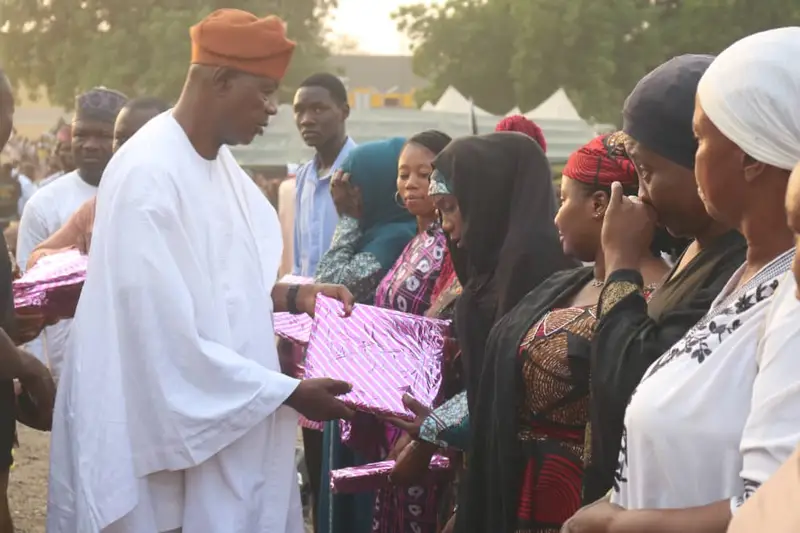
ANALYSIS: When Husband and Wife can no longer live under same roof
ANALYSIS: When Husband and Wife can no longer live under same roof
Kennett and Clara knew that their marriage was plunging but they were reluctant to go their separate ways due to fear of societal condemnation and the rigour of securing divorce from a high court.
Their union became toxic two years ago when Kenneth began to suspect that Clara was cheating on him. This resulted in frequent conflicts that often degenerate to fights. Kenneth also lost respect and submission from Clara.
Little did they know that a recent fight at night over late return by Clara will end her life.
As usual, they started with verbal attacks and then went into physical fight during which Clara hit her husband hard on the private part and he strangled her to death.
Many couples like Kenneth and Clara are stuck in soured, toxic and abusive marriages.
They are reluctant to leave the union for several reasons including their children’s upbringing, protecting their reputation, rigours of securing divorce, and religious beliefs.
Critics say that all the reasons are worthy of consideration but do not worthy dying for.
“ As long as a marriage hasn’t become abusive, those reasons and more should be considered for protecting the marriage.
“However, the moment violence enters into a relationship, the only thing to be considered is the safety of the lives involved,” a marriage counsellor, Mrs Obiageli Okoro, argues.
She also argues that although it is the duty of high courts to dissolve marriages contracted under the Marriage Causes Act, couples in abusive marriages can separate from each other to avert tragedies.
Okoro warns that it is dangerous for a couple to still live together waiting for divorce when they can no longer stay without fighting.
Mr Ogedi Ogu, Country Director of Advocacy for Justice and Accountability is convinced that although high courts reserve jurisdiction to dissolve registered marriages, an embattled couple is at liberty to seek “first aid” in the form of judicial separation.
According to him, no law compels a spouse to die in an abusive marriage.
“For every marriage that has turned toxic, it is safe for the parties to stay slightly apart for their individual safety.
“In as much as it is the law that only a court of law can grant dissolution of marriage contracted under the Marriage Act, it is not the law that they must continue to co-habit until such marriage is dissolved.
“It is rather a ground for dissolution where it is shown that a party has deserted the marriage and the husband and wife have lived apart for a period of at least one year or two years.
“However, notwithstanding the toxicity of such a union, the dissolution of marriage is only granted by a high court where the marriage is contracted under the Act,” he argues.
The country director also notes that customary marriages are dissolved by the customary court.
Mrs Ebere Obiora, Ogun Coordinator of African Women Lawyers Association, notes that the Matrimonial Causes Act is the law under which statutory marriages are contracted.
According to her, the same statute vests jurisdiction on high courts only, to entertain cases arising from marriages contracted under the Act.
“However, an abused partner may not wait in a toxic marriage until his/her petition for dissolution of marriage is granted.
“The grant of marriage dissolution terminates the marriage, but delays associated with divorce proceedings may be a deadly trap for the abused partner.
“This calls to mind that the Marriage Causes Act also made provisions for a petition for judicial separation, which is a softer order of court concerning a failing marriage,” she says.
According to Obiora, judicial separation prohibits physical contact of the parties, but does not terminate the marriage.
She explains that this means that the partners remain in the marriage and, therefore, cannot re-marry.
“Unlike a divorce petition, an application for judicial separation may be brought at any time during the marriage where violence is proved.
“The grant of judicial separation, therefore, relieves parties from co-habitation and, more importantly, gives room for resolution of issues between partners, which may lead to reconciliation,” she adds.
She advises that judicial separation should not prevent filing of a petition for dissolution of the marriage, where there is no positive improvement in the relationship.
“The affected parties are free to apply to the court for dissolution of the marriage,” she says.
A Principal Partner at Ayoola Chambers, Lagos, Mr Julius Ayoola, emphasises that dissolution of a marriage depends on the type of marriage contracted by the couple.
He argues that dissolving a marriage that has broken down irretrievably is not the exclusive preserve of a high court.
According to him, a marriage contracted solely under customary principles will be dissolved in a customary court.
“In some customary marriages, the parties may decide to return the bride price.
“In Igbo culture, a customary marriage is deemed dissolved once the bride price has been returned,” he says.
Ayoola, however, says the high court may be interested in the custody and welfare of children produced by customary marriages.
“The high court has jurisdiction over the welfare of the children,” he says.
A Professor of Law and Senior Advocate of Nigeria (SAN), Samson Erugo, believes that it is not necessary for a high court to dissolve a marriage before the couple can live apart.
“That rule does not accord with reality, and most times, it works out hardship in practice.
“In some jurisdictions, parties could, by marriage dissolution agreement or mediation, agree to separate.
“Such an agreement could also be filed in court and adopted by the parties without the stress of a trial.
“I think this liberal approach should be adopted in Nigeria, in every established case of marriage that has broken down irretrievably,” Erugo argues.
He is convinced that requirement of a high court order to dissolve a marriage is rooted essentially in the Christian culture of sanctity of marriage.
“It is part of our colonial heritage and has been easily embraced by some local cultures that try to protect the marriage institution.
“While these arguments may still be strong, modern reality should provide exceptions,” he says.
Analysts urge intensified efforts in ensuring safety of lives of couples in abusive marriages, while protecting the marriage institution and ensuring the welfare of the children. (NANFeatures)
News
Governor donates N9 million to wives of fallen soldiers

Governor donates N9 million to wives of fallen soldiers
Gov. Ahmed Ododo of Kogi, has announced the donation of Nine million naira to nine widows of fallen soldiers during the West African Social Activities (WASA) 2025 festivities.
The ceremony, held at the 12 Brigade headquarters, Chari‑Maigumeri Barracks, Lokoja, brought together military personnel, community leaders, and families of service men, who have paid the ultimate price for Nigeria’s security.
Represented by the State Security Adviser, Jerry Omodara the governor reaffirmed his Administration’s commitment to supporting Nigerian Army and security agencies.
Rep of Gov. Ahmed Ododo, the State Security Adviser Cdr Jerry Omodara (rtd), presenting gifts to wives of fallen soldiers at the 12 Brigade’s Nigerian Army WASA 2025, held at Chari Maigumeri Barracks Lokoja
He described the initiative as a moving gesture underscoring the state’s gratitude for the ultimate sacrifice made by its military families.
Ododo, serving as Special Guest of Honour, praised the 12 Brigade’s WASA describing it as a vibrant showcase of Nigeria’s cultural heritage.
“The event is a vital morale‑boost for troops who have spent the year on operations, training and community security.
“The annual WASA tradition has been “impressively sustained” and provides soldiers a chance to unwind with families after a demanding year,” he said.
He traced WASA’s roots to the West African Frontier Force, the predecessor of the Nigerian Army, emphasising its role in fostering unity, camaraderie and a sense of belonging among officers, soldiers and their dependents.
The governor lauded the colorful performances by various cultural troupes, saying the displays proved that “you have not broken links with your cultural backgrounds.”
He congratulated the brigade for successful 2025 operations that kept peace and security across Kogi, urging personnel to remain “focused, resilient and proactive” as they enter 2026.
Ododo reaffirmed the state’s commitment to supporting the Nigerian Army and other security agencies, promising continued assistance to improve welfare and operational effectiveness.
Earlier, the Commander, 12 Brigade, Nigerian Army, Brig. -Gen. Kasim Sidi, had assured Kogi of the army’s commitment to maintaining peace and security.
He described WASA as a significant occasion that brought together officers, soldiers, families, and friends to celebrate shared identity, cultural heritage, and collective achievements.
The commander praised the dedication, discipline, and professionalism of officers and soldiers, highlighting the Brigade’s achievements in 2025, including successful military operations against bandits and kidnappers in Kogi. (NAN)
News
Notorious Drug Kingpin who killed three NDLEA operatives 12-years ago arrested

NDLEA arrests wanted drug kingpin, recovers illicit drugs from his hideout
Operatives of the National Drug Law Enforcement Agency (NDLEA) have successfully apprehended a long-wanted drug kingpin, ending a 12-year manhunt following his involvement in the brutal killing of three NDLEA officers.
This is contained in a statement by the Director, Media and Advocacy NDLEA, Mr Femi Babafemi on Sunday in Abuja.
Babafemi said that the suspect was notorious for drug trafficking, evading arrest and mobilising armed thugs against security agents.
He said that the suspect was on Friday, Jan. 16 tracked to his hideout in Owode town, Ogun State by tactical teams of the agency following credible intelligence.
He also said that during the clinical operation, the suspect was found in possession of 69 kilograms of skunk, a strain of cannabis.
He added that the arrest marked a significant breakthrough in the agency’s commitment to ensuring that no fugitive, regardless of how long they evaded justice, remained beyond the reach of the law.
“The suspect’s criminal history is marked by extreme violence and lawlessness.
“As a result, he had on June 15, 2014 orchestrated a barbaric mob action against a team of NDLEA officers who had attempted to arrest him at his enclave.
“The attack resulted in the cold-blooded murder of three NDLEA officers, including Rabiu Usman Kazaure and two others, who were killed by armed thugs mobilised by Jimoh.
“While the suspect managed to escape the scene that day, the agency remained resolute in its pursuit of justice for the fallen heroes,” he said.
In another encounter with the suspect on Aug. 12, 2023, when NDLEA operatives stormed his residence in Ado-Odo town, Ogun state, he managed to escape.
Babafemi however, said that the operatives succeeded in recovering 139 sacks of skunk with a total weight of 1,922 kilograms.
This, he said was following assets forfeiture proceedings instituted in court by the agency, the house in Ado-Odo, which served as a warehouse for his illicit drug trade, has since been finally forfeited to the Federal Government.
While commending the officers and men of the Ogun command for the arrests and seizures, the NDLEA Chairman, retired Brig. Gen.-Buba Marwa acknowledged their commitment.
Marwa enjoined them as well as their colleagues nationwide to maintain the current tempo of their balanced approach to the Agency’s drug control efforts.
He described the arrest of the wanted drug kingpin as a triumph of justice and a testament to the agency’s long memory.
He added that the arrest sends a clear and unambiguous message to all drug barons and fugitives.
“You may run, and you may hide for a season, but the long arm of the law will eventually find you.
“The arrest is particularly significant because it closes a painful chapter that began on June 15, 2014.
“For twelve years, this individual lived with the blood of our gallant officers on his hands. He mistakenly thought that time had erased his crimes.
“Today, we have proven that the NDLEA does not forget its own. We do not forget the sacrifices of those who laid down their lives in the service of our fatherland.
“This arrest is for the families of those three officers who have waited 12 years for justice”, Marwa said in a tribute to the officers lost over a decade ago.(NAN)
News
Food prices crash further in major Markets, as Residents call for sustainability

Food prices crash further in major Markets, as Residents call for sustainability
Prices of some food items have further dropped across markets in the Federal Capital Territory (FCT), Abuja, as residents welcomed the development.
A market survey conducted by the News Agency of Nigeria(NAN) across major markets in the FCT showed that while prices of several staples declined after the festive season, some food items remain expensive.
Some residents who spoke to NAN said the drop in prices had brought some relief but urged the government to ensure sustainability, as many households were still constrained by low purchasing power.
Latest food inflation statistics released by the National Bureau of Statistics (NBS) showed that Nigeria’s food inflation rate dropped in December 2025.
According to the NBS, food inflation stood at -0.36 per cent on a month-on-month basis, representing a decrease of 1.49 percentage points compared to the 1.13 per cent recorded in November 2025.
The bureau attributed the decline to a reduction in the average prices of items such as tomatoes, garri, eggs, potatoes, carrots, millet, vegetables, plantain, beans, wheat grain, ground pepper and fresh onions, among others.
At Garki Model Market, NAN observed notable price drops in several food items between November 2025 and January 2026.
A dustbin basket of big red tomatoes is being sold for between N5,000 and N5,500, as against N6,000 to N7,000, while a dustbin basket of shombo dropped to N3,000 from N4,500 to N5,000 recorded between November and December.
Similarly, a dustbin basket of fresh pepper dropped significantly, falling from between N4,500 and N5,000 to about N2,500, while tatashe dropped from between N5,000 and N6,000 to N3,000.
A dustbin basket of onions is being sold for N4,000 compared to N4,500 previously, and sweet potatoes dropped to between N1,000 and N1,800 from N3,000.
However, Irish potatoes recorded a sharp increase, increasing from 5,000 to N6,000 to between N9,000 and N10,000 per dustbin basket.
Rice prices remained relatively stable, with a 50kg bag of local rice selling for between N52,000 and N57,000, while foreign rice is being sold for N64,000. A 25kg bag of local rice is being sold for between N25,000 and N28,000.
At Nyanya Market, a dustbin basket of tomatoes sold for between N2,000 and N3,000, as against N4,000 during the festive season.
Onions dropped to N3,300 to N4,000 from N5,000 for a dustbin basket, while five medium-sized yam tubers now sell for between N4,500 and N5,000 compared to N5,000 to N7,500 previously sold.
One mudu of brown beans dropped from N1,000 to N700.
In Gwagwalada Market, food prices recorded a slight drop after the festive season, though many staples remained expensive.
A 50kg bag of foreign rice, which sold for N70,000 to N75,000 during Christmas, is now sold for between N65,000 and N70,000, while local rice dropped from N68,000 to between N62,000 and N66,000.
A medium-sized yam tuber dropped slightly from N4,000 to about N3,500.
The price of a live chicken dropped from between N20,000 to N25,000 to between N16,000 and N19,000, while a kg of cow beef dropped to N9,000 from N10,500. Frozen fish prices, however, remained unchanged.
At Apo Resettlement Market, prices of tomatoes, pepper and sweet potatoes declined, while onions and beef remained largely stable.
A dustbin basket of big red tomatoes dropped to between N3,500 and N4,000 as against N5,000 to N6,000, and tatashe dropped to N4,000 and N4,500 as against N5,500 sold during the festive period.
Pepper dropped significantly from N4,500 to N2,500 for a dustbin basket, as well as sweet potato, which dropped from N2,500 to N1,500, while a kg of beef remained at N8,000.
At Orange Market, Mararaba, NAN observed a sharp decline in the prices of tomatoes and pepper.
A big basket of tomatoe Jos dropped from between N23,000 to N25,000 to between N10,000 and N11,000, while fresh pepper dropped to N10,000 from N15,000.
Prices of beans, however, remained unchanged at between N750 and N800 per mudu.
Dei-Dei Market also recorded significant price reductions.
A big basket of derica tomatoes known as tomatoe Jos is presently being sold for between N8,000 and N12,000, as against N25,000 to N28,000, while a 50kg bag of fresh pepper dropped sharply to between N15,000 and N20,000 from N60,000.
A dustbin basket of sweet potatoes dropped to N1,000 as against N2,500 to N3,000 it was previously sold.
In Karu and Lugbe markets, prices of garri, beans, tomatoes and yams also eased, while Orozo Market recorded a rise in the price of brown beans, with a bag increasing from N42,000 to N49,000.
In Karu, five big yam tubers are being sold for between N8,000 and N10,000, as against N12,000 and N14,000, while in the Lugbe market, five medium-sized tubers of yams are being sold at N7,000 as against N10,000.
At Wuse Market, prices remained higher compared to other markets surveyed, though slight reductions were recorded in tomatoes, pepper, onions and tatashe.
A dustbin basket of Tatashe is selling for between N5,000 and N6,000 as against N7,000 and N8,000 while tomatoes are selling for between N7,000 and N7,500 as against N7,500 and N8,000.
A dustbin basket of fresh pepper dropped from N5, 000 and N6,000 to between N4,000 to N4,500
Some traders attributed the post-Christmas price drop to reduced consumer spending in January and increased supply from harvests.
A tomato trader at Garki Market told NAN that more customers were now buying full baskets due to lower prices, although many still bought smaller quantities because of limited funds.
Cyril Okocha, a businessman said the fluctuations were largely seasonal, noting that crops such as tomatoes, peppers and onions could become expensive during off-season periods.
According to him, the main challenge is not just food prices but low income and irregular salary payments.
“Many workers are underpaid, salaries are not indexed to inflation, minimum wage is not fully implemented across states, and some workers are not paid regularly.”
“To ensure sustainability of food prices, the government should encourage dry season farming, improve food availability, security, regulate prices, and boost incomes, these are also essential to easing the cost-of-living crisis.”
Some residents also shared similar views. Yemisi, a civil servant, expressed satisfaction with the drop in prices of items such as tomatoes, pepper, rice and beans, but urged the government to ensure sustainability.
“The reduction is encouraging, but many people still cannot afford these items. Government should ensure the prices are sustained,” she said.
A security guard, Mohamed Gobiri, described the price drop as a welcome development, especially for rice, and appealed to the government to further ease food costs.
Meanwhile, farmers and agricultural experts have urged the Federal Government to adopt deliberate and long-term policies to sustain the decline in food prices.
Kabir Ibrahim, President, All Farmers Association of Nigeria (AFAN) said the current drop in food prices was largely driven by harvest-season factors and warned that prices could rise again without structural improvements.
Experts also recommend addressing insecurity, foreign exchange challenges and transportation costs to curb food inflation and ensure sustainable food security. (NAN)
-
6 years ago
Our situation in Kano terrible – Gov Ganduje cries out
-

 News12 months ago
News12 months agoFG pledges commitment to enhance Police officers Welfare, implement Tinubu’s 8-point agenda for NPF
-

 News11 months ago
News11 months agoBREAKING; NSCDC gets approval to commence 2025 recruitment exercise
-

 News9 months ago
News9 months agoAlleged cocaine deal: Court issues orders in suspended DCP Abba Kyari’s case
-

 News12 months ago
News12 months agoDPO under investigation for allegedly taking teenage girl to his home while in police custody
-

 News12 months ago
News12 months agoJUST IN; Commissioner of Police bows out of Service
-

 News9 months ago
News9 months agoJUST IN; Police Inspector dies watching Arsenal match
-

 News12 months ago
News12 months agoBREAKING; NLC declare nationwide protest


